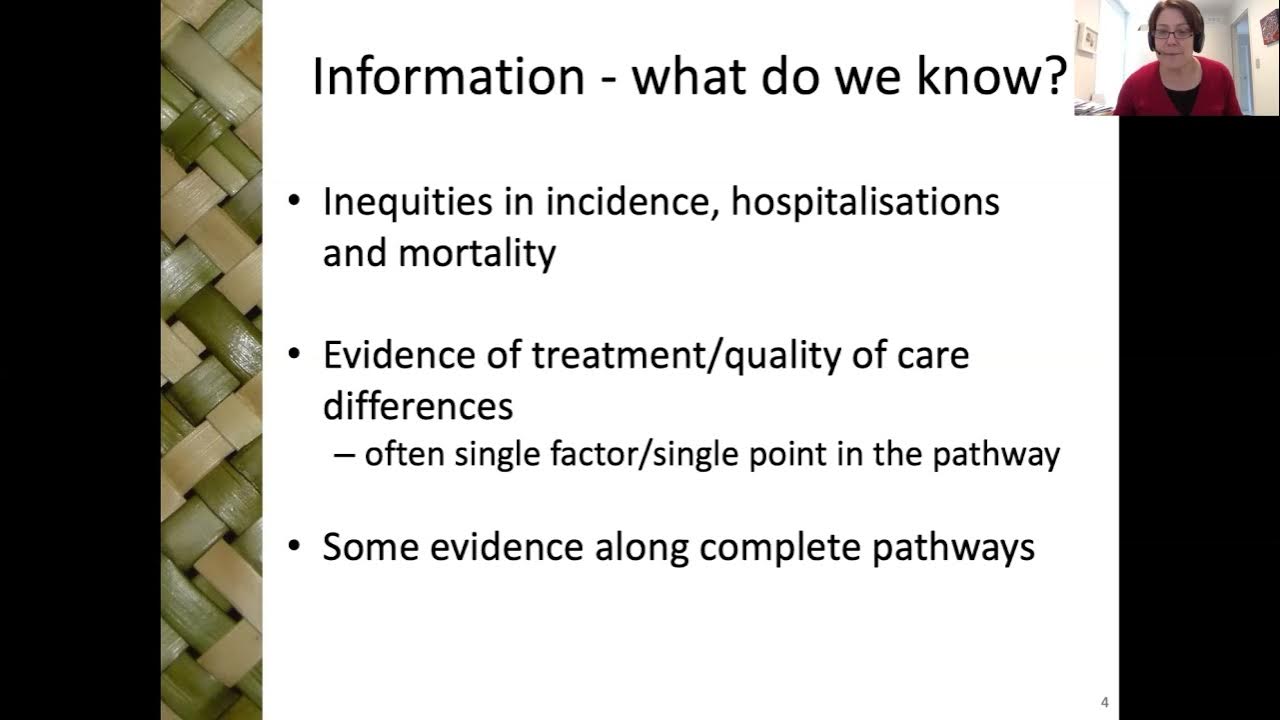The Aotearoa History Show - Episode 3 | Early Encounters
Summary
TLDRThe transcript summarizes the early encounters between Māori and European explorers in New Zealand. It describes the first meeting in 1642 between Māori and Dutch explorer Abel Tasman, which ended in violence. Over 100 years later, British explorer James Cook made contact and developed greater cultural understanding through a Tahitian translator. However, Cook also introduced new diseases and sparked the devastating Musket Wars by bringing guns to New Zealand. Missionaries later came, converting some Māori to Christianity but suppressing aspects of Māori culture. By 1840, Māori outnumbered Europeans in NZ 40:1, but a partnership between cultures was disrupted as Europeans came to dominate.
Takeaways
- 😲 In 1642, Abel Tasman was the first European to arrive in New Zealand but his initial encounter with Māori was hostile
- 👥 James Cook later established more peaceful relations between Europeans and Māori in 1769
- 🔫 The introduction of muskets by Europeans contributed to devastating intertribal Māori conflicts dubbed 'the Musket Wars'
- 🥔 Potatoes introduced by Europeans fueled population growth enabling larger war parties during this period
- ☠️ Intertribal conflicts and European diseases caused massive fatalities, killing 10-30% of the Māori population
- ✝️ Missionaries converted some Māori to Christianity but also suppressed Māori culture
- 😷 European ships introduced diseases like tuberculosis and gonorrhea to New Zealand
- 🐖 Pigs, potatoes and other introduced species fundamentally altered traditional Māori lifestyle
- 💰 By the 1840s, Māori were profiting from trade with Europeans and acquiring European technologies
- 🏴 In the next episode, the establishment of New Zealand as a British colony is explained
Q & A
What was the nature of the first encounter between Māori and Europeans?
-The first encounter was hostile. Māori warriors paddled out to challenge Tasman's ships, blowing conch shell trumpets. Tasman's crew responded by firing cannon shots, which the Māori saw as accepting their challenge to battle. Fighting broke out the next day, resulting in deaths on both sides before Tasman sailed away.
How was James Cook's interaction with Māori different from Abel Tasman's?
-Cook came with more peaceful intentions, bringing a Tahitian translator to communicate. There was some trading and learning of each other's cultures. However, there were still misunderstandings and violent incidents between Cook's crew and Māori.
What were some of the major impacts of Europeans on Māori in the early period of contact?
-Europeans introduced new animals, plants, technologies, and diseases to Māori. Pigs, potatoes, metal tools, and muskets had major impacts on Māori lifestyle and warfare. Diseases like syphilis and tuberculosis caused population decline.
What factors contributed to the devastating Musket Wars among Māori tribes?
-The introduction of muskets combined with the increased food production from potatoes allowed tribes to support larger war parties and raids. Old grievances were settled with this new technology, setting off waves of conflict.
What was the role of missionaries in this early contact period?
-Missionaries aimed to convert Māori to Christianity. They had mixed success, but provided literacy education, helped build peace between tribes, and sometimes participated in the musket trade. They also suppressed elements of traditional culture.
How did Māori relate to European traders and settlers prior to 1840?
-There was a two-way exchange happening. Māori encouraged Europeans to live among them, trade with them, and provide technology. Māori were in control, making decisions about where Europeans could live and who they could trade with.
What signs were there that Māori were adopting European technologies in this period?
-Some Māori acquired European ships for trade, started using plows and flour mills, bought shares in sailing vessels. They seemed to be harnessing European tech while retaining control over their own society.
Why didn't the early contact period lead to an equal partnership between Māori and European settlers?
-Within just a couple decades, European settlement and political control increased dramatically. What had been more two-way exchanges eventually turned into colonial domination as the 19th century progressed.
What happened in the encounter between Māori invaders and the Moriori people of the Chatham Islands?
-A Māori war party conquered the Moriori using their muskets, and proceeded to enslave the existing population. The Moriori were a peaceful people unable to resist the armed invaders.
What shift does the next episode suggest is coming in New Zealand history after 1840?
-The script hints that European domination increased, the partnership ended, and New Zealand shifted from independent Māori control into becoming a colony.
Outlines

This section is available to paid users only. Please upgrade to access this part.
Upgrade NowMindmap

This section is available to paid users only. Please upgrade to access this part.
Upgrade NowKeywords

This section is available to paid users only. Please upgrade to access this part.
Upgrade NowHighlights

This section is available to paid users only. Please upgrade to access this part.
Upgrade NowTranscripts

This section is available to paid users only. Please upgrade to access this part.
Upgrade NowBrowse More Related Video

A retelling of a story of Ngāti Whātua Ōrākei (English Language version)

Land of the Long White Cloud | Episode 4: Pākehā Paralysis | RNZ

Creating pathways to support Hauora Māori and health equity in the future NZ health system

Who Are The Māori People Of New Zealand?

The Aotearoa History Show - Episode 4 | Te Tiriti o Waitangi

New Zealand Culture | Fun Facts About New Zealand
5.0 / 5 (0 votes)